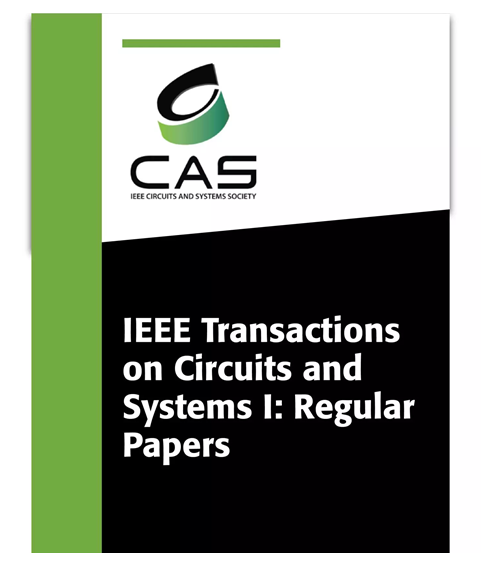Fast Hardware Architecture With Efficient Matrix Computations for the Key Generation of Classic McEliece
IF 5.2
1区 工程技术
Q1 ENGINEERING, ELECTRICAL & ELECTRONIC
IEEE Transactions on Circuits and Systems I: Regular Papers
Pub Date : 2025-01-20
DOI:10.1109/TCSI.2025.3528119
引用次数: 0
Abstract
Classic McEliece, with a remarkably stable security level, has been selected as one of the four key-establishment algorithms in the fourth-round evaluation of the post-quantum cryptography (PQC) standardization process of national institute of standards and technology (NIST). However, its memory-intensive and time-consuming key generation poses an obstacle to widespread use. In this paper, we propose a fast hardware implementation of the key generation incorporating several architectural optimizations. For the Gaussian elimination, we optimize the scheduling of computing resources and the memory access process and present a high-performance and flexible systemizer with multiple low fan-out systolic arrays. Besides, an algorithmic-level parallelized design for entry generation and Gaussian elimination is proposed to reduce the redundant computation time. A compact entry generator with a multi-level feedback mechanism and a 2-D high-speed FFT module facilitates continuous streaming the generated entries into the systemizer.FPGA implementation results show that our designs for the key generation improve time-area efficiency by 11.9% to 43.2% compared to the state-of-the-arts. Moreover, compared to the hardware implementations for the key generation of the other two quasi-cyclic code-based PQC algorithms, ours for Classic McEliece based on the random code achieves close to or better results in several metrics.经典mcelece密钥生成的快速硬件结构和高效矩阵计算
在国家标准与技术研究院(NIST)后量子密码(PQC)标准化过程的第四轮评估中,经典的McEliece算法被选为四种密钥建立算法之一,安全水平非常稳定。然而,它的内存密集和耗时的密钥生成造成了广泛使用的障碍。在本文中,我们提出了一个快速的硬件实现的密钥生成结合了几个架构优化。对于高斯消去,我们优化了计算资源的调度和内存访问过程,提出了一个具有多个低扇出收缩阵列的高性能灵活的系统。此外,为了减少冗余计算时间,提出了一种算法级并行化的条目生成和高斯消去设计。一个紧凑的输入发生器与一个多层次的反馈机制和一个2-D高速FFT模块,有利于连续流生成的条目进入系统。FPGA实现结果表明,与最先进的技术相比,我们设计的密钥代将时区效率提高了11.9%至43.2%。此外,与其他两种基于准循环码的PQC算法的密钥生成硬件实现相比,我们基于随机码的Classic McEliece算法在几个指标上取得了接近或更好的结果。
本文章由计算机程序翻译,如有差异,请以英文原文为准。
求助全文
约1分钟内获得全文
求助全文
来源期刊
CiteScore
9.80
自引率
11.80%
发文量
441
审稿时长
2 months
期刊介绍:
TCAS I publishes regular papers in the field specified by the theory, analysis, design, and practical implementations of circuits, and the application of circuit techniques to systems and to signal processing. Included is the whole spectrum from basic scientific theory to industrial applications. The field of interest covered includes: - Circuits: Analog, Digital and Mixed Signal Circuits and Systems - Nonlinear Circuits and Systems, Integrated Sensors, MEMS and Systems on Chip, Nanoscale Circuits and Systems, Optoelectronic - Circuits and Systems, Power Electronics and Systems - Software for Analog-and-Logic Circuits and Systems - Control aspects of Circuits and Systems.

 求助内容:
求助内容: 应助结果提醒方式:
应助结果提醒方式:


